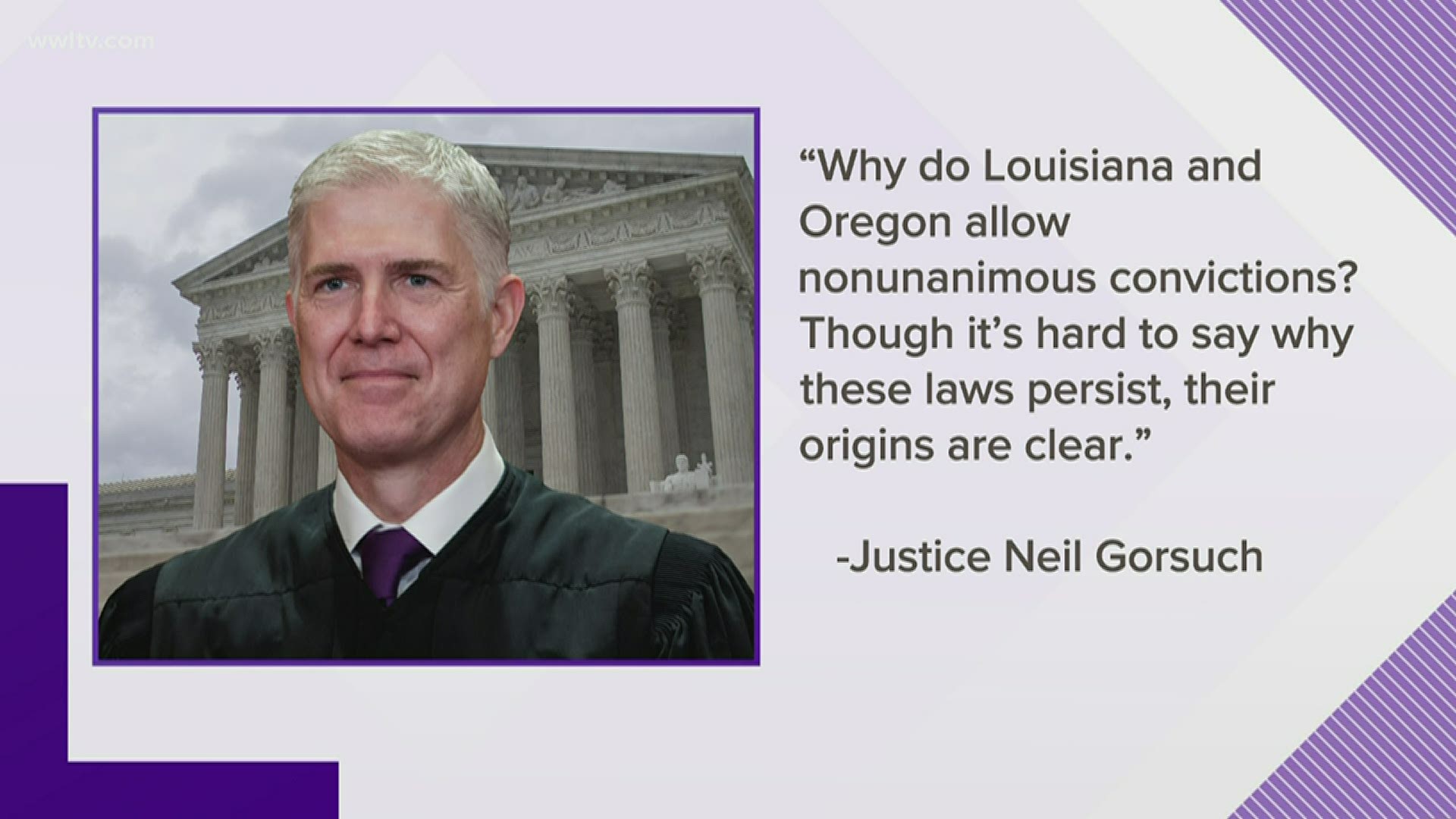You can expect a new trial in the deadly shooting case of former New Orleans Saints defensive end Will Smith.
That prediction is rooted in the opinion United States Supreme Court handed down on Monday. A majority of the justices decided that defendants in serious crimes can only be convicted by a unanimous jury.
The high court’s decision came after the justices reviewed a New Orleans case involving Evangelisto Ramos. His attorneys challenged his murder conviction in the 2014 stabbing death of Trinice Fedison. Ramos’ team argued anything short of a unanimous jury verdict for this crime violates his constitutional rights. WWL-TV legal analyst Chick Foret boiled down the opinion.
“10 out of 12 is not good enough. The 6th amendment of the Constitution according to today’s opinion says that it has to be a unanimous decision, it has to be a unanimous verdict, 12 out of 12,” said Foret.
Back in 2018, Louisiana voters approved a measure to eliminate a Jim Crow era law that allowed felony convictions to move ahead, as long as 10 of 12 jurors agreed. At the that time, only Louisiana and Oregon had such a law in place. Many viewed that law as racist and a majority of the Supreme Court justices seemed to agree.
“Why do Louisiana and Oregon allow non-unanimous convictions? Though it’s hard to say why these laws persist, their origins are clear,” said Justice Neil Gorsuch.
The Supreme Court opinion brings to mind two high profile cases in the metro area: the shooting death of former Saints player Will Smith, and the shooting death of former NFL player Joe McKnight. Foret says both cases will likely be back in the criminal court system.
“Both Cardell Hayes who was convicted of killing Will smith, and Ronald Gasser who was convicted of killing Joe McKnight will both get a new trial under today’s opinion,” said Foret.
Foret says Monday’s opinion applies to any defendant that has not exhausted all possibilities of appeal. He estimates about 44 previously convicted criminals in Louisiana will likely appeal. When they do, prosecutors will have a new challenge of convincing all jurors, instead of just 10.

